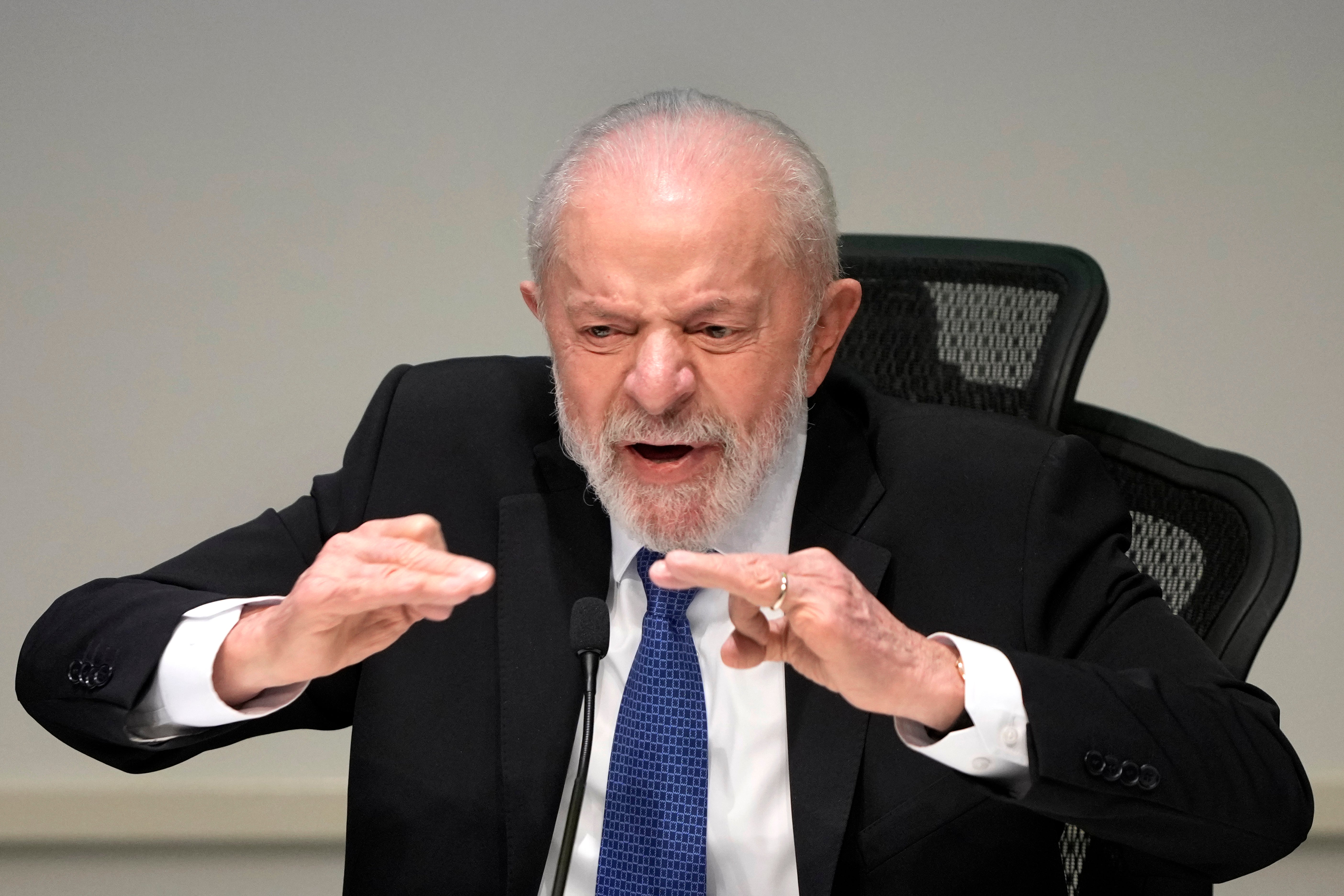Brazil's Lula says Maduro could call for a new election in Venezuela 'if he has good sense'
Brazilian President Luiz Inácio Lula da Silva says that he still doesn’t recognize Venezuelan counterpart Nicolás Maduro as the winner of last month’s presidential election

Your support helps us to tell the story
From reproductive rights to climate change to Big Tech, The Independent is on the ground when the story is developing. Whether it's investigating the financials of Elon Musk's pro-Trump PAC or producing our latest documentary, 'The A Word', which shines a light on the American women fighting for reproductive rights, we know how important it is to parse out the facts from the messaging.
At such a critical moment in US history, we need reporters on the ground. Your donation allows us to keep sending journalists to speak to both sides of the story.
The Independent is trusted by Americans across the entire political spectrum. And unlike many other quality news outlets, we choose not to lock Americans out of our reporting and analysis with paywalls. We believe quality journalism should be available to everyone, paid for by those who can afford it.
Your support makes all the difference.Brazilian President Luiz Inácio Lula da Silva said Thursday morning that he still doesn’t recognize Nicolás Maduro as the winner of last month’s presidential election in Venezuela, and that his counterpart could call for a new vote “if he has good sense.”
“Maduro still has six months left in his term. He is the president regardless of the election. If he has good sense, he could call upon the people of Venezuela, perhaps even call for new elections, create an electoral committee and allow observers from around the world to monitor,” Lula said in an interview with Radio T.
He also said that Maduro still owes an explanation to Brazilians and the rest of the world.
Brazil is by far South America’s largest nation and shares one of Venezuela’s longest land borders. Unlike many other nations that have either recognized Maduro or González as the winner, the governments of Brazil, Colombia and Mexico have taken a more neutral stance by neither rejecting nor accepting it when Venezuela’s electoral authorities declared Maduro the winner at the ballot box.
In a joint statement, the three countries called on Venezuela’s electoral body to release tens of thousands of vote tally sheets, considered the ultimate proof of results.
Under Lula, the country has been an important mediator, including the Barbados Agreement reached in October, when Maduro’s administration and political opposition reached an agreement on a new election that triggered relief from U.S. sanctions.
Celso Amorim, Lula's closest international adviser and former foreign relations minister, went to Caracas in July to monitor the election. Speaking to a Senate committee Thursday morning, Amorim said that a new election would need to be verified in a solid and robust manner.
Venezuelan law allows for another vote whenever the National Electoral Council or judicial authorities annul an election found to be fraudulent or whose outcome was impossible to determine. The new election must take place within six to 12 months under the same conditions as the annulled vote and the same candidates must appear on the ballot.
Logistics, laws and costs aside, a new election would be a risky gamble for Maduro and his allies as July’s vote and subsequent protests showed they have lost support across the country and can no longer bank on a cadre of die-hard supporters, known as “Chavistas,” as well as public employees and others whose businesses or employment depend on the state to comfortably beat opponents.
Although electoral authorities declared Maduro the winner of the highly anticipated election, they have yet to produce detailed voting tallies to back up their claim. The opposition, however, revealed that it collected tally sheets from more than 80% of the 30,000 electronic voting machines nationwide, showing that Maduro lost by a more than 2-to-1 margin.
An AP review of the tally sheets released indicates that Gonzalez won significantly more votes than the government has claimed. The analysis casts serious doubt on the official declaration that Maduro won.
The AP processed almost 24,000 images representing the results from 79% of voting machines, resulting in tabulations of 10.26 million votes. The processed tally sheets also showed Gonzalez receiving more votes on 20,476 receipts compared to only 3,157 for Maduro.
___
Regina García Cano in Caracas, Venezuela ,and Joshua Goodman in Miami, contributed to this report.